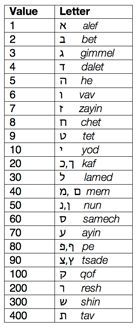
An Israeli’s daily life is figured according to the Gregorian calendar, but biblical, national, and secular holidays are all commemorated on the Hebrew date. All biblical feasts are figured according to the Hebrew calendar, which is why they do not occur on the same dates from year to year on the Gregorian calendar. Every few years, an additional 30-day month is added to the Hebrew calendar to ensure that holidays happen at roughly the same time of year.
So when you read in the Bible that something occurred in the first month, it does not mean January. It means the Hebrew month of Nisan, which falls somewhere in March or April. Passover starts on the 15th day of Nisan. We read about the month of Nisan in the Torah: “Now the Lord spoke to Moses and Aaron in the land of Egypt, saying, ‘This month shall be your beginning of months; it shall be the first month of the year to you’” (Exod.12:1–2). In addition to biblical feasts, many other family events like weddings, birthdays, and anniversaries are honored on the Hebrew date.
Finally, in the Hebrew calendar, years are counted since creation! So, in May 2012 when Israel celebrated her 64th year as a modern nation, the year on the Hebrew calendar was 5772.
 In the Hebrew alphabet, every letter has a numerical equivalent. The chapters and verses of the Hebrew Bible are not identified by traditional numbers, but rather by Hebrew letters that have numerical values (See chart). Some numbers have become significant. For example, the number 18 (8 plus 10) is thought to be a good number, because the letters that total 18 form the word chai (חי), which means “life.”
In the Hebrew alphabet, every letter has a numerical equivalent. The chapters and verses of the Hebrew Bible are not identified by traditional numbers, but rather by Hebrew letters that have numerical values (See chart). Some numbers have become significant. For example, the number 18 (8 plus 10) is thought to be a good number, because the letters that total 18 form the word chai (חי), which means “life.”
Hebrew letters can also be used to count! Psalm 119, often referred to as the longest chapter in the Bible, is a great example of this. The psalm is divided into sections and the title of each section is a letter in the Hebrew alphabet, beginning with aleph (the first letter) and ending with tav (the last letter). This is also a very interesting psalm in Hebrew because each verse in a section starts with the same letter of the alphabet. So the first eight verses all start with words that begin with the letter aleph. This is Hebrew alliteration and is helpful in memorization.
In Jewish thought, the day begins at sundown and ends at sundown. This is because in Genesis it says, “So the evening and the morning were the first day” (1:5). The days of the week are named yom rishon (first day), yom shani (second day) yom revi’i (third day) and so on until yom shabbat, which is the seventh day and a day of rest. Numbering the days in this way mirrors the description of the days of creation.
I have just skimmed the surface in this short article. As you can begin to see, numbers are important in how we perceive things. Is this the year 2012 or 5772? Much, much more could be written on the subject of numbers and their importance in Hebraic thought. I hope I have whetted your appetite to delve into this fascinating subject for yourself!
Source: By Rebecca J. Brimmer, International President and CEO
All logos and trademarks in this site are property of their respective owner. All other materials are property of Bridges for Peace. Copyright © 2025.
Website Site Design by J-Town Internet Services Ltd. - Based in Jerusalem and Serving the World.